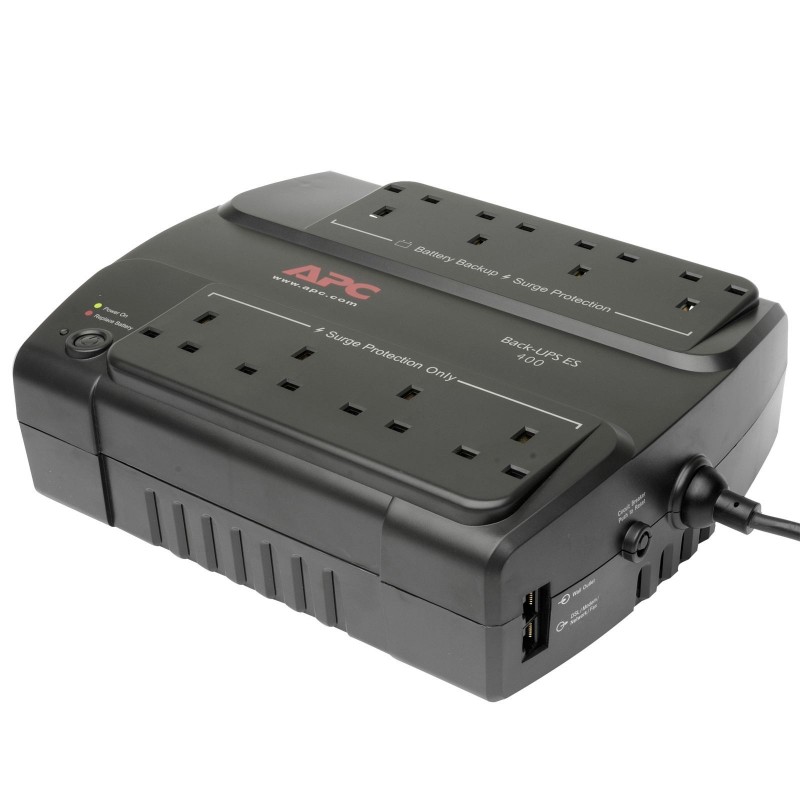Can there be a better time to write about staying connected during a powercut, than when you’re in the middle of one?
Well it just so happens the power went out here about an hour ago and it is not expected to be back on for a few more hours yet. However, I am merrily typing away on my laptop, connected to the internet. My son is playing online games in the other room (it’s half term and there’s a lockdown). My wife is busy working on her computer too. In fact, everyone in the house is still able to do most things online, even though we have no mains power.
We’re not even using a WiFi hotspot, although that may be necessary later on.
UPS to the rescue!
No, not that UPS. I mean an Uninterruptible Power Supply (UPS). It’s basically a big battery with power sockets all over the place. Data centres have really big ones, but you can get smaller ones that fit under your desk, or somewhere else that’s convenient for you. There are options for different types of plug socket, as well as USB connections and all the bells and whistles people expect.
Our UPS has 8 regular plug sockets. 4 are powered via the battery and 4 are simply surge protected. I have all of the essential networking equipment plugged into the 4 that are powered by the battery. I used to have my PC and monitor plugged in to the battery, but that really depletes the battery quickly. Different makes and models vary, but mine used to run out of juice after about 10 to 15 minutes like that.
That’s not the case with the current set of gadgets I have plugged in. None of them use a great deal of energy and so the battery has stayed up for a very long time and that means the modem and WiFi hub are still on and still churning out a signal. Naturally it helps that we all have laptops which don’t need to be connected to the mains power to be used. Eventually they will run out of power as well, but by that point the powercut should have ended.
How much does a UPS cost?
You can get a fairly decent UPS for under £100. As with any purchase, make sure you read reviews and check the specs before committing to buying one. If you can afford a more expensive one and feel that you need it, go for it. You’ll forget it is even there most of the time, but when the worst does happen and the power does go out, it can really save the day.


